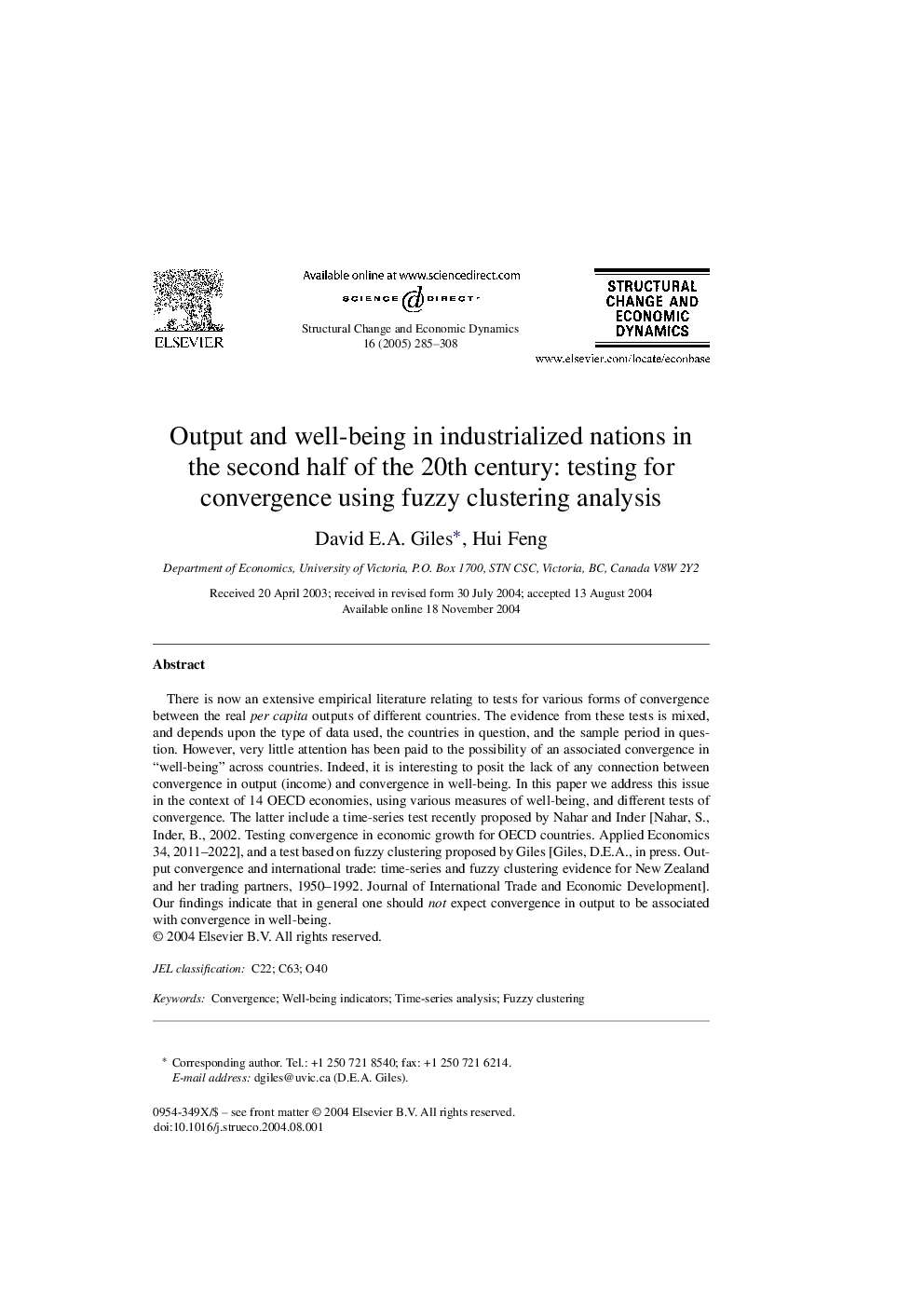| Article ID | Journal | Published Year | Pages | File Type |
|---|---|---|---|---|
| 10484577 | Structural Change and Economic Dynamics | 2005 | 24 Pages |
Abstract
There is now an extensive empirical literature relating to tests for various forms of convergence between the real per capita outputs of different countries. The evidence from these tests is mixed, and depends upon the type of data used, the countries in question, and the sample period in question. However, very little attention has been paid to the possibility of an associated convergence in “well-being” across countries. Indeed, it is interesting to posit the lack of any connection between convergence in output (income) and convergence in well-being. In this paper we address this issue in the context of 14 OECD economies, using various measures of well-being, and different tests of convergence. The latter include a time-series test recently proposed by Nahar and Inder [Nahar, S., Inder, B., 2002. Testing convergence in economic growth for OECD countries. Applied Economics 34, 2011-2022], and a test based on fuzzy clustering proposed by Giles [Giles, D.E.A., in press. Output convergence and international trade: time-series and fuzzy clustering evidence for New Zealand and her trading partners, 1950-1992. Journal of International Trade and Economic Development]. Our findings indicate that in general one should not expect convergence in output to be associated with convergence in well-being.
Related Topics
Social Sciences and Humanities
Economics, Econometrics and Finance
Economics and Econometrics
Authors
David E.A. Giles, Hui Feng,
